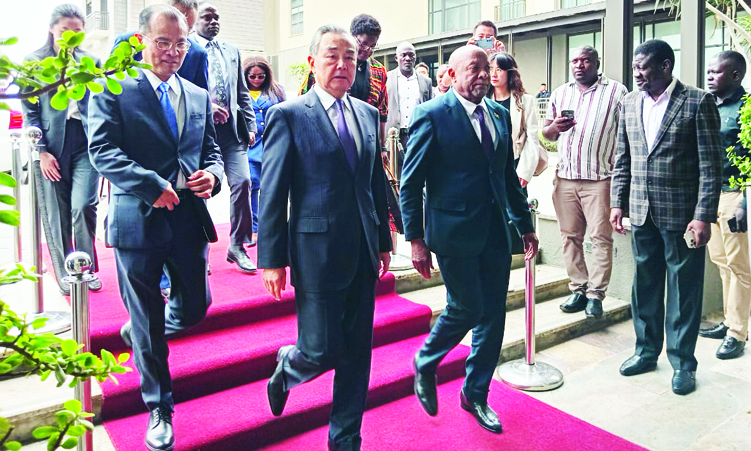Over the past weeks officialdom and bureaucrats have vociferously urged Namibia’s small and medium enterprises (SMEs) to make use of preferences ushered in by the African Continental Free Trade Area (AfCFTA) agreement.
This means they must export goods and services to countries on the continent.
There are many ways for a country to accelerate its economic growth and exporting goods and services is an important one.
As a business growth strategy, it makes sense for Namibia’s SMEs, servicing the needs of a rather small domestic market, to do so.
A flagship project of the African Union (AU) agenda 2063, AfCFTA is an ambitious agreement that promotes continent-wide trade, investment and people movement.
With AfCFTA and its focus on promoting trade in value-added goods and services, the AU intends to create the world’s largest free trade area based on its 55 participating countries.
Hitherto the AU, through AfCFTA, has sent a strong signal to international investors and demonstrated that implementing harmonised rules for trade and investment is gaining momentum.
The AU is showing that although AfCFTA is being rolled out in phases, in the long run Africa is serious about being open for business.
Integration of the continent’s 1.3 billion individuals through trade and investment makes sense, but much remains to be done as business between Africa’s countries is unsatisfactorily low.
This accounts for the bureaucrats calling for Namibia’s SME sector to make productive use of AfCFTA to access export markets.
The aim of AfCFTA is to not only reduce tariff barriers, but it also urges the governments of African countries to accelerate road and rail infrastructure development and maintenance.
Furthermore, the plan is the elimination of non-tariff barriers such as less restrictive people movement regulations and the addressing of bureaucratic delays at border posts.
Reducing tariff and non-tariff barriers does not make doing business in a foreign country a walk in the park, as some erroneously believe.
Although AfCFTA helps there are other obstacles that Namibian SMEs planning to do business in foreign countries must negate, and this gives credence to the notion that exporting is easier said than done.
For starters, exporters will have to contend with country-specific business laws and the by-laws of the local authority of towns in targeted export markets.
Equally important is to gain an understanding of foreign exchange controls, local labour laws, work permit regulations and generally the business culture in a foreign country.
Don’t get me wrong, as I previously said, exporting is an important economic growth strategy.
But export promotion must include business development and growth programmes that strive to first expand a country’s industrial base and address capacity constraints.
Programmes are needed that assist enterprises to improve product quality, presentation and packaging, facilitate access to export credit finance and guide on how to do business in a foreign country.
An export promotion programme developed as a smart partnership by the government’s economic ministries and private sector representative bodies will kick-start a process.
One that not only entices SMEs, but more broadly Namibia’s enterprise sector to venture beyond the country’s borders.
Who is up to the challenge to get things going, to help lift Namibia’s export earnings by diversification beyond the traditional ones such as fish, grapes, meat and extractive minerals?
- Danny Meyer is reachable at danny@smecompete.com
Stay informed with The Namibian – your source for credible journalism. Get in-depth reporting and opinions for
only N$85 a month. Invest in journalism, invest in democracy –
Subscribe Now!








